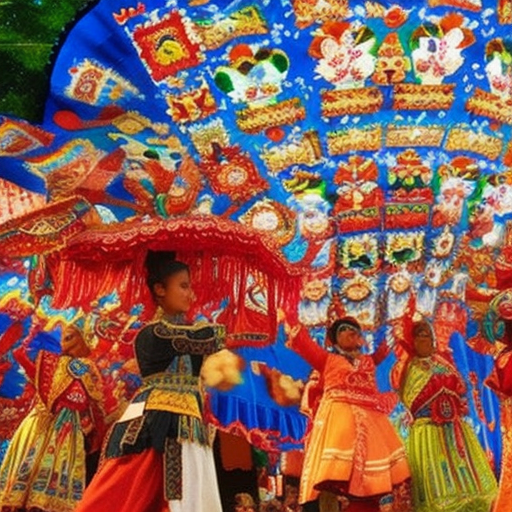Cultural Festivals: Celebrating Diversity and Tradition
Cultural festivals are vibrant and dynamic events that celebrate the rich diversity of human culture and tradition. These festivals provide a platform for communities to come together and showcase their unique heritage through various forms of art, music, dance, food, and customs. They play a significant role in preserving and promoting cultural identity, fostering social cohesion, and promoting tourism.
Preserving Cultural Identity
Cultural festivals are essential for preserving and promoting cultural identity. They provide an opportunity for communities to showcase their unique customs, traditions, and artistic expressions. Through performances, exhibitions, and workshops, these festivals allow people to learn about and appreciate different cultures, fostering a sense of pride and belonging among community members. By passing down traditions from one generation to the next, cultural festivals help ensure the continuity of cultural heritage.
Fostering Social Cohesion
Cultural festivals play a vital role in fostering social cohesion and building bridges between different communities. These events bring people from diverse backgrounds together, encouraging dialogue, understanding, and mutual respect. By promoting cultural exchange and interaction, festivals create a sense of unity and shared experiences. They provide a space for people to connect, celebrate, and learn from one another, breaking down barriers and promoting inclusivity.
Promoting Tourism
Cultural festivals have a significant impact on tourism, attracting both domestic and international visitors. These events showcase the unique cultural aspects of a region, making it an attractive destination for travelers seeking authentic experiences. Festivals often feature traditional music, dance performances, art exhibitions, and culinary delights, offering tourists a chance to immerse themselves in the local culture. The economic benefits of cultural festivals extend beyond the event itself, as visitors often explore the surrounding area, supporting local businesses and contributing to the overall growth of the tourism industry.
Types of Cultural Festivals
Cultural festivals come in various forms, reflecting the diversity of human culture. Some festivals focus on specific art forms, such as music, dance, or theater. For example, the Edinburgh Festival in Scotland is renowned for its celebration of performing arts, including theater, dance, and music. Other festivals center around religious or traditional events, such as Diwali in India, which celebrates the victory of light over darkness. Additionally, there are festivals that highlight specific cultural groups, such as the Chinese New Year celebrations or the Mardi Gras festival in New Orleans.
Impact on Local Communities
Cultural festivals have a profound impact on local communities. They provide opportunities for artists, musicians, and performers to showcase their talents and gain recognition. Festivals often involve local businesses, artisans, and food vendors, boosting the local economy. Additionally, these events create a sense of pride and unity within the community, as residents come together to organize and participate in the festivities. Cultural festivals also attract media attention, putting the spotlight on the host community and raising its profile on a national or even international scale.
Challenges and Future Outlook
While cultural festivals have numerous benefits, they also face challenges. Organizing and funding these events can be a complex task, requiring collaboration between various stakeholders, including government bodies, cultural organizations, and local communities. Additionally, ensuring the authenticity and integrity of cultural expressions can be a challenge in the face of commercialization and globalization.
Looking ahead, the future of cultural festivals is promising. As societies become more interconnected, the demand for authentic cultural experiences continues to grow. Cultural festivals have the potential to bridge cultural gaps, promote understanding, and celebrate diversity. With proper support and recognition, these events will continue to thrive, preserving and promoting cultural heritage for generations to come.
In conclusion, cultural festivals are vital for preserving cultural identity, fostering social cohesion, and promoting tourism. They provide a platform for communities to showcase their unique traditions and artistic expressions, while also creating opportunities for cultural exchange and understanding. By celebrating diversity and promoting inclusivity, cultural festivals play a crucial role in building bridges between communities and preserving cultural heritage.












